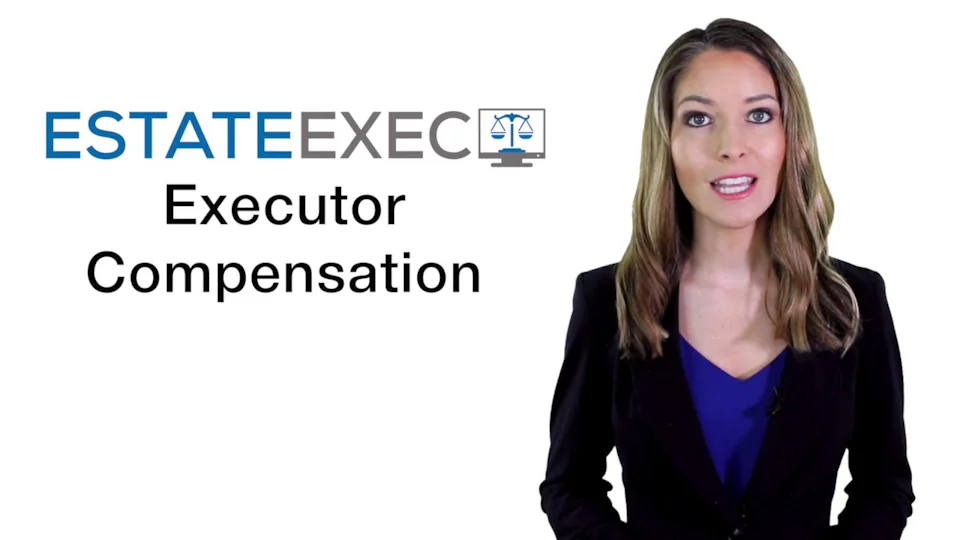State-Specific Executor Fee Calculator
An executor is entitled to compensation for his or her services in accordance with the will or default state-specific rules (you can use our authoritative state-specific calculator below to calculate fees for your particular estate).

How Much Should an Executor be Paid?
If the will specifies executor compensation (i.e., fees), those specified terms generally prevail. A will can specify almost any approach imaginable to calculating executor compensation, but if there is no will, or the will is silent or unspecific on the matter, then compensation must be calculated according to state-specific laws, which can sometimes be vague, and sometimes quite complex. Common calculation approaches include:
- Fixed Amount
(e.g., $10,000 specified in the will) - Percentage of Overall Estate Value
(e.g., 4% of CA estates <$100K, as per California Probate Code, §§ 10800-10805) - Cash Flow an Executor Manages
(e.g., 5% of amounts received or paid out in cash for TX estates, as per Texas Estates Code § 352.002) - Charges for Services Rendered
(e.g., hourly service billing for IL estates, as per 755 ILCS 5/27-1) - Other Considerations
(e.g., an executor for an Ohio estate is also entitled to 1% of the value of any unsold real estate, as per Ohio Revised Code § 2113.35)
Even if the will does specify a fee calculation approach, in some states the executor can renounce this fee and instead collect a fee based on default state statutes. However, there can be time limits on this decision, so be sure to see the state-specific rules linked below.
When dealing with state-specific laws, also note that individual states have varying definitions of "estate value", and that the cost impact of any professional help hired by the executor can vary widely, so be sure to pay careful attention to the state-specific details linked below. Also, when calculating fees based on estate value, in some states an executor may also be entitled to an additional fee for services above and beyond the ordinary (such as overseeing the sale of the decedent's real estate; conducting litigation, managing the decedent's business, etc.).
If a "services-rendered" approach is taken, fees may take into account the nature of the work involved, the effort involved, the professional background of the executor, and the results and benefits of that work for the heirs. In such cases, it's important to keep records of the time you spend on estate business: what, where, and how long. You should keep these records as you perform the activities: neglecting to do so could easily result in your compensation claims being denied by the court.
State-Specific Rules and Calculators
Executor Compensation Considerations
Timing: Generally, any executor compensation is paid during the final stages of estate distribution, as one of the last things the executor does. Be careful in situations in which there is not enough to pay yourself and all other outstanding debts, as this may expose you to legal issues. However, in most states, executor compensation has precedence over almost all other debts (for example, in NY, only funeral expenses have a higher precedence).
Communication: You may wish to discuss your compensation with the other heirs early during the process, so they don't end up surprised and unhappy when they notice their shares are somewhat less than expected. You may also want to leave the door open to modify your planned compensation as the process unfolds and you determine how much or how little work will actually be required on your part.
Optional: Keep in mind that collecting executor fees is optional. Even if the will specifies compensation, or if state laws support specific fees, the executor can choose to forego that compensation, and many do. That being said, serving as an executor is A LOT of work, and there's a reason that state laws support such compensation.
Tax Optimization: One reason an executor might choose to forego explicit compensation is that executor compensation is taxable, while inheritances are generally not taxable. Consequently, if the entire estate (or a large portion of it) is going to be inherited by the executor, you may end up with more after-tax value if you forego executor compensation.
Trusts: Note that trustee compensation for managing a trust is handled differently than that of executor compensation for settling an estate (see Trustee Compensation).
Expense Reimbursement: In addition to compensation for his or her services, an executor is also entitled to reimbursement from estate proceeds for legitimate and reasonable estate administration costs, such as death certificate copies, notarization of documents, the EstateExec licensing fee, and even travel costs strictly associated with managing the estate. Once you have established an estate banking account, you can often pay for these costs directly from that account, so that no reimbursement is necessary, but you should keep good records in case you later have to justify your expenditures to the IRS or to estate heirs. Executor expenses can be reimbursed when desired, although certain probate proceedings may require prior approval. While executor expenses are generally not considered when calculating executor compensation (i.e., executor fees), if the executor incurs substantial costs paying for services that would normally be directly handled by an executor, a probate judge may sometimes require that the default executor fee be reduced accordingly.
EstateExec™ Makes It Easy!
Think of EstateExec as something like TurboTax®, but for estate executors.
With $$ coupons.
EstateExec includes state-specific guidance with AI software, easy financial accounting,
and even the option to work together online with your lawyer or other interested parties.
You can get started using EstateExec for free,
and if you find it useful, pay a one-time $199 licensing fee (per estate).
Plus, EstateExec provides coupons for discounts on helpful third-party services,
such as junk removal, which will more than pay for the license price!
Additional Information
See also the EstateExec Complete Executor Guide.
In case you're interested, authoritative details about executor fees in each state can be found here: